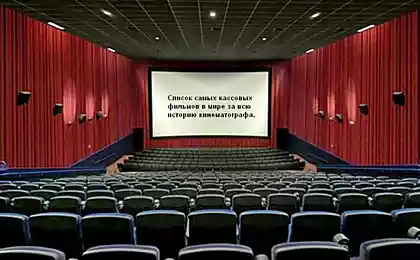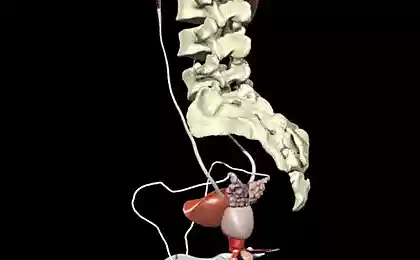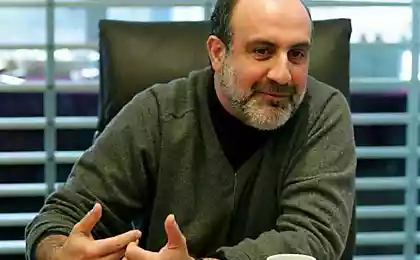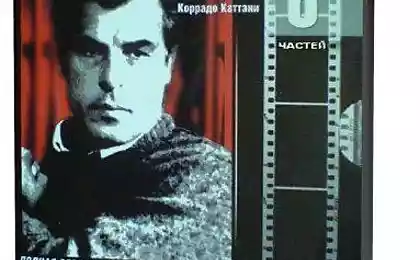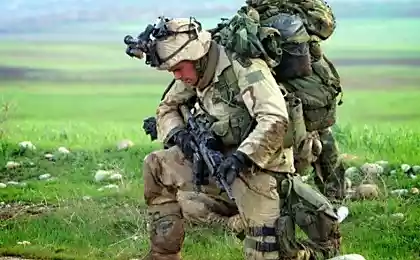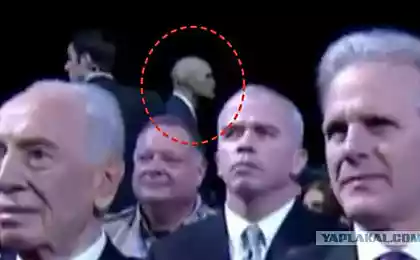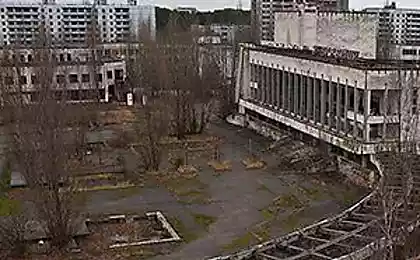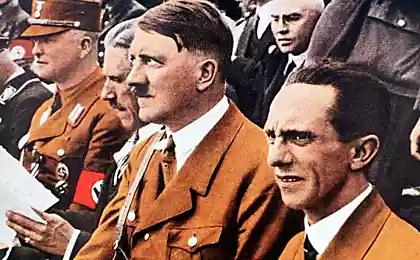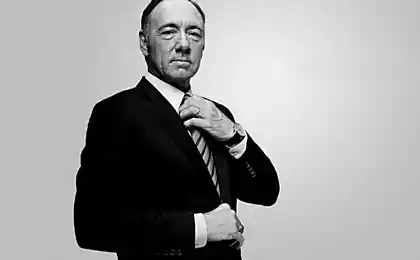1423
world dictators
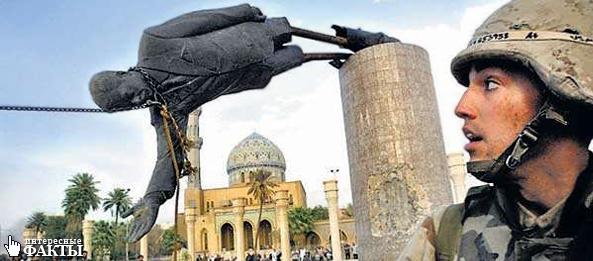
Muammar Gaddafi, the former head of the Libyan Jamahiriya. '42 Power. Hiding from the rebels, was killed during the assault on his hometown
At the end of August 2011 Libyan rebels captured and looted the residence of Muammar Gaddafi in Tripoli. One of the rebels found in her famous hat dictator. Colonel of the palace was not there. Then the Libyan National Transitional Council has promised a reward of $ 1, 3 million for the killing or arrest of Gaddafi. Simultaneously, the rebels offered him an unobstructed exit from Libya if he voluntarily renounce power. In response to many years of Libyan leader vowed in a radio address to the end of the war.
He kept his promise and did not give up until the end. Only on October 20 during the assault on Gaddafi's hometown of Sirte Gaddafi was captured and died from loss of blood, cause injuries in both legs. According to the rebels to escape from Sirte, Colonel did not allow air strike on the town of NATO forces.
Hosni Mubarak, the former president of Egypt. 30 years in power, there is a court, facing the death penalty
August 3, Hosni Mubarak and his two sons were taken to the courtroom and taken to a special cage for the defendants. Scenes from the former president of Egypt behind bars went around the world on the day of the beginning of the process, in which Mubarak is accused of corruption and murder of hundreds of demonstrators. Hosni Mubarak came to power in Egypt in 1981 after the assassination of his predecessor Anwar Sadat. Mubarak himself, who was then vice-president, was then shot. "Modern Pharaoh," remained in power for 30 years. All this time, the country has the emergency law, which allowed to detain people without charge for a month, and then transfer the criminal cases in military courts, the law introduces censorship "in the interests of public safety." Mubarak four elected president in a referendum in which he played the only candidate. Even at the end of last year, few people in Egypt doubted that Mubarak would remain in office until such time as it decides to pass it to his younger son Gamal. But in Egypt there was a revolution. Protests in Cairo, Alexandria and other cities, lasted 18 days, more than 800 protesters were killed in clashes with police. Mubarak tried to rectify the situation by forming a new government and announced that he would not run in the next election. But on February 11, Mubarak was forced to resign. In late March, he was placed under house arrest, and in April were detained by his two sons. All three deny the accusations of corruption. In the event that Mubarak guilty, he could face the death penalty.
Zine El Abidine Ben Ali, the former president of Tunisia. '23 Power, fled the country
Zine El Abidine Ben Ali came to power in 1987 in a coup. At the 1994 elections, Ben Ali, the only candidate, was approved as president. In 2002, Tunisia was a referendum, the results of which allowed the president to be elected for more than three consecutive terms, the age limit was raised from 70 to 75 years, so Ben Ali was able to be re-elected for a fourth and a fifth term.
With the unrest in Tunisia in December 2010 began the Arab Spring events. The demonstrators, who took to the streets, protesting against unemployment and corruption. The most important positions in politics and business in Tunisia were engaged representatives of the "Family" - relatives of the president and his wife Leila Trabelsi. January 14, after three weeks of protests, Ben Ali and his family fled the country and received political asylum in Saudi Arabia. In June, Ben Ali and his wife were found guilty in absentia of theft and sentenced to 35 years in prison and a fine of $ 65 million. More than 30 Trabelsi family members who remained in Tunisia, were arrested. After the verdict Ben Ali gave the media for the first time since fleeing an official statement, which called the charges trumped up and claimed that on board the plane to Saudi Arabia, he was lured by deceit. Swiss bank accounts of Ben Ali, which kept tens of millions of dollars were frozen in January, but during the flight he and his wife out of the country 1, 5 tons of gold worth $ 60 million.
Laurent Gbagbo, the former president of Côte d'Ivoire, 11 years in power, arrested, in prison
Laurent Gbagbo won the presidential election in Côte d'Ivoire in 2000. His term was due to expire in 2005, but Gbagbo canceled elections to prevent the participation of representatives of the rebels who seized the north of the country since 2002 and oppose the government. In the elections of 2010, he lost in the second round of the former Prime Minister Ouattara Allasanu, but controlled by the president of the Constitutional Council decided to exclude from the calculation results of the elections in several northern regions and declared Gbagbo the winner. In Côte d'Ivoire, riots broke out again, Gbagbo forces dispersed several peaceful protests involving weapons. In March, Human Rights Watch described the situation in Côte d'Ivoire crimes against humanity. France intervened in the conflict and the United Nations April 10, their helicopters attacked Gbagbo's residence and destroyed almost all the military equipment of his supporters. April 11 Gbagbo was arrested and placed in jail. Shortly before his arrest, realizing the hopelessness of the situation, he urged his supporters to lay down their arms and "return to normal civilian rule».
Saddam Hussein, the former Iraqi president, 24 years in power, executed
In 1968, to power in a coup in Iraq comes to party "Baas". Saddam Hussein - one of its leaders, he became Vice-President, takes control of internal security, the security services and the army. In 1979 President al-Bakr resigned, Saddam became his successor. A week after coming to power, Saddam announces the disclosure of the conspiracy in the party "Baas", 68 high-ranking "conspirators" were arrested, 21 were executed. "Now we are going through our Stalinist era" - he said then. The exact number of victims of the regime of Saddam Hussein is not known, perhaps, is more than a million people. In 1988, during a gas attack on the Kurdish town of Halabja killed 5,000 people. During "Operation Anfal" hundreds of thousands of Kurds were taken from their homes and tens of thousands were killed. During the Iran-Iraq war from 1980 to 1988 killed about 300 000 people during the invasion of Kuwait and the ensuing massacre of the Kurds and Shiites - hundreds of thousands. Tens of thousands of prisoners were tortured to death in Iraqi prisons.
In February 2003, the United States launched a military operation against Iraq, in April troops occupied Baghdad, Saddam Hussein's government fell. The president himself was arrested Dec. 13, 2003, he was found in the basement in the Iraqi village of Al-Daur. In October 2005, the trial of Saddam on charges of killings and massacres, in November 2006, the former president was sentenced to death. In prison before his death, Saddam read the Koran every day and wrote poetry. December 30, 2006 he was executed by hanging, the execution was filmed on video and shown on Iraqi television.
Slobodan Milosevic, 11 years in power, died in prison
In May 1999, Slobodan Milosevic, at that time president of Serbia, was indicted by the International Tribunal for the UN war crimes in the former Yugoslavia for genocide and crimes against humanity. He was declared responsible for the deportation of hundreds of thousands of Kosovo Albanians and mass executions during the war in Kosovo, and later added to these charges massacre of 8,000 Muslim Bosnians in Srebrenica, ethnic cleansing in Croatia, Bosnia and Herzegovina.
After the NATO bombing of Serbia and ending the war in Kosovo, Milosevic called early presidential elections in September 2000. The opposition leader Vojislav Kostunica won the first round, gaining more than 50% of the vote, but the electoral commission declared that he scored only 48, 96%, therefore, a second round. The next day after the announcement of the official results, 27 September, the protests began in Serbia, took to the streets hundreds of thousands of people. October 5, demonstrators stormed the parliament building and the central television. Driver Lyubislav Djokic came to storm the television station on his bulldozer, as a result of this revolution called the "Bulldozer". October 6, Milosevic announced the resignation, the electoral commission declared victory Kostunica in the first round. In March 2001, Milosevic was arrested by Serbian police and handed over to the court. During the process, he completely denied his guilt and defended himself in court yourself. He died of a heart attack before sentencing March 11, 2006.
Nicolae Ceausescu, 24 years in power, executed
December 25, 1989, General Secretary of the Communist Party of Romania, Nicolae Ceausescu and his wife Elena, Deputy Prime Minister of Romania, were put on trial and rapid shot on the same day. Ceausescu ruled Romania from 1965, accused of genocide against its own people and that his policies, he led the country to poverty and hunger.
Street protests in Romania began in December 1989 in Timisoara, Ceausescu ordered the army and the police to open fire against the demonstrators. December 20 in a televised address he accused of organizing the protests "foreign forces". Soon after the revolution spread to Bucharest, where December 21 troops were brought. However, the next day, Defense Minister Vasile Milea was found dead; according to one version, he committed suicide, on the other - was killed on the orders of Ceausescu for refusing to shoot at protesters. December 22 Ceausescu tried to appeal to the demonstrators from the balcony of the Central Committee of the Communist Party of Romania, but was met with angry shouts. The crowd began to storm the building, Ceausescu and his wife were saved at the last moment by helicopter, but the pilot defected to the protesters and the helicopter landed in a field near the town of Targovishte. Ceausescu and their guards decided to catch the car on the road: at first they went close - the driver pretended that he ran out of gas. Ceausescu continued to escape into another car and drove to Targoviste, where the evening all were arrested and brought to the tribunal.
Ferdinand Marcos, the former dictator of the Philippines, 20 years in power, fled the country
Ferdinand Marcos was elected president of the Philippines in 1965 and re-elected in 1969. To stay in power, and further, in 1972, he declared a state of emergency, justifying its communist threat. At this time, freedom of expression was restricted to the Philippines, hundreds of thousands of people were arrested. In 1981 a state of emergency was lifted two years later returned to the country of former opposition leader Benigno Aquino, but was killed by the military as soon as the plane came down. His widow Corazon Aquino to run for the next presidential election in 1986, and Marcos managed to win it only by rigging. Philippine military elite was divided into supporters of Aquino and Marcos, as a result of the conflict Marcos was forced to flee to the United States and died in exile in Hawaii three years later. During the reign of Marcos and his wife Imelda transferred several billion dollars to accounts in the United States and Switzerland, their relatives and friends held a majority of leadership positions, they have been reissued many private companies. After the flight of the president in his palace was found 2,700 pairs of shoes belonging to Imelda Marcos.
Pol Pot, former Prime Minister of Cambodia (Kampuchea), 4 years in power, deposed, accused of crimes against humanity, died before the trial
During the reign of Pol Pot and the Khmer Rouge in Cambodia were killed several million people - a quarter of the population. In 1979, the government of Pol Pot was displaced as a result of the invasion of the Vietnamese army, but still almost 20 years, he remained the leader of the Khmer Rouge. In 1997, Pol Pot ordered the killing of his longtime companion Son Sen and his family, which provoked a conflict with the Khmer Rouge: Pol Pot was placed under house arrest, in April 1998 it was announced that it will issue an international tribunal and will be tried for crime years 1975-1979. Shortly thereafter, Pol Pot died of a heart attack.
Jean-Claude Duvalier, 15 years in power, left the country
"Baby Doc" Jean-Claude Duvalier in Haiti inherited power from his father, Francois Duvalier, in 1971 a referendum confirmed that he is the successor of "Papa Doc". In 1985 another referendum on 99, 8% were in favor of Haitians to remain president for life and got the right to choose his successor. But at the end of the year in Haiti began street protests that swept the country in January 1986. February 7 Duvalier and his wife went into exile in France (in the photo - at the airport before departure). How much money Duvalier out of the country during the flight and transferred to overseas accounts before, it is not known, but it is clear that the bill went to the tens of millions of dollars, which allowed the family to lead a luxurious life in Paris. Part of this amount ($ 6,000,000) was subsequently frozen in Swiss accounts. In January this year, Jean-Claude Duvalier returned to Haiti, where he was met at the airport enthusiastic supporters. Two days after the arrival of Duvalier was arrested, he was accused of corruption and human rights violations. Duvalier was temporarily released, his trial has yet to be.
Augusto Pinochet, the former Chilean President, 17 years in power, resigned as president, is accused of murder, died before sentencing
Augusto Pinochet came to power in a military coup in 1973, during the years of his reign were killed thousands of opponents of the regime, tens of thousands were arrested and tortured. Pinochet handed over power peacefully, after a referendum in 1988, the majority of Chileans called for the return of civilian government. In 1990, he resigned as president, but seven years remained the supreme commander and won a seat in the Senate, and hence immunity in the case of prosecutions. In 1998, Spain has accused Pinochet of murdering its citizens. In 2000, the Chilean Supreme Court stripped Pinochet of immunity, then against him have been several charges of kidnapping, murder, human rights violations and corruption. No process was carried to completion - December 10, 2006, Pinochet died after a heart attack.
Manuel Noriega, the former military dictator of Panama, 6 years in power, is in jail
Former Panamanian dictator Manuel Noriega spent 20 years in US prison for drug trafficking, extortion and money laundering. In 2010, he was extradited to France, where he has been sentenced to 7 years for the laundering of money derived from the sale of drugs through French banks. In early August, France has decided to extradite Noriega to Panama. There, he was sentenced in absentia to three charges of human rights violations and sentenced to 20 years in prison on each of them. Noriega was ousted in a US military operation in 1989.
Suharto, the former president of Indonesia, 32 years in power, resigned
Suharto came to power in Indonesia in 1965 after the suppression of the coup, which was declared a communist. This was followed by the mass persecution of the left and the collision, which killed 500,000 people. Two years later, Suharto finally ousted his predecessor Sukarno. Indonesian Parliament seven times reelected to the post of president. In 1998, during the Asian economic crisis in Indonesia began student riots. Suharto's brutally cracked down on protesters - 500 students were killed. The protests intensified, and after demonstrators occupied the parliament building, Suharto announced his resignation on May 21, 1998 (see photo). After that Suharto 10 years he lived in Indonesia, he actually managed to escape punishment: a few times it tried to accuse of corruption (World Bank estimates, he could usurp from $ 15 billion to $ 35 billion), but each time, counsel refers to his poor health, and before sentencing, it never came. Suharto died on 27 January 2008.



